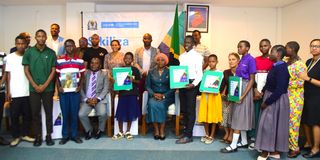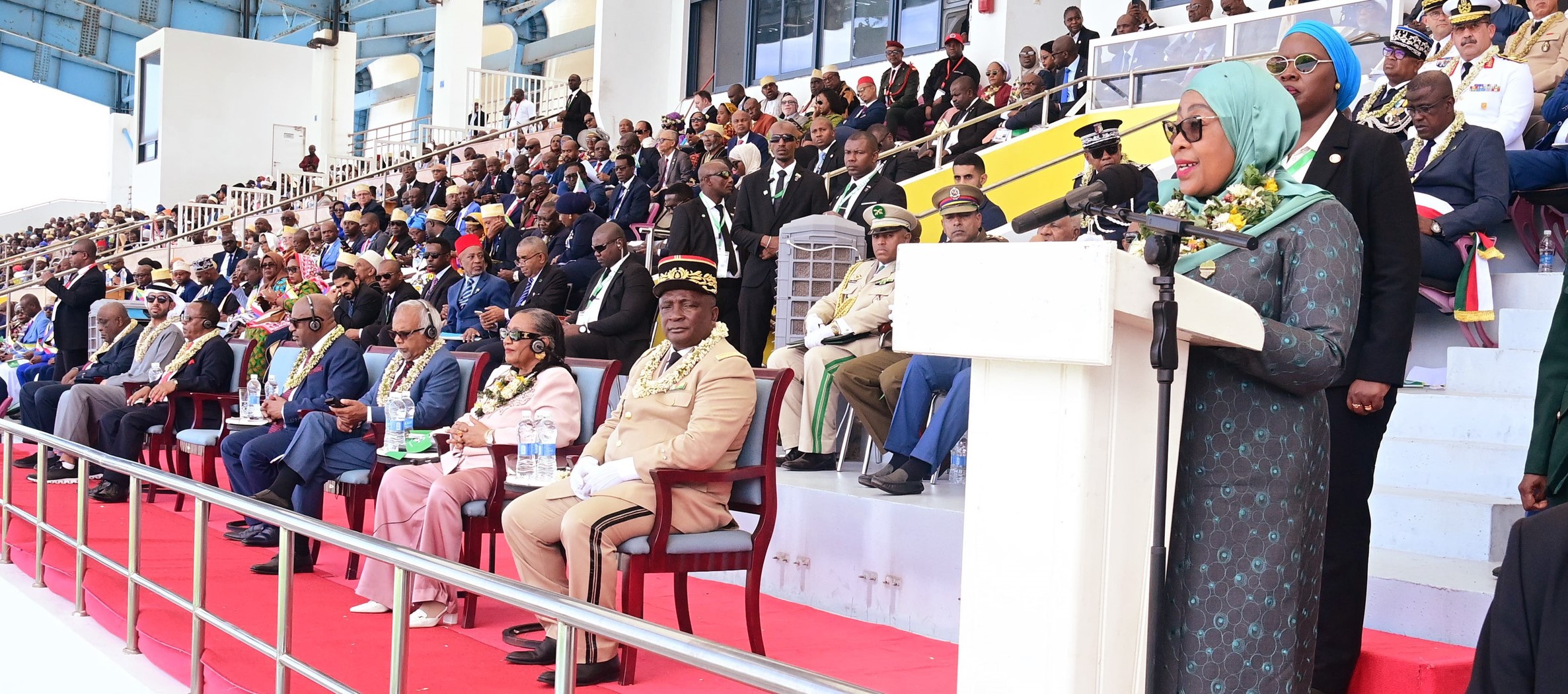Shaping the future: Tanzania’s children speak out on development priorities for 2050

What you need to know:
- In early 2024, the Tanzanian government launched a transparent and inclusive public consultation process for the National Development Vision 2050.
Dar es Salaam. Over 14,000 children have submitted their key priorities and aspirations for Tanzania’s Development Vision 2050 to the President’s Office Planning Commission, highlighting critical areas for improvement to shape the Tanzania they want.
Among the top concerns were improvements in healthcare and transportation infrastructure, curriculum development, combating violence against children, eradicating harmful cultural practices, and enhancing support for children with special needs.
During the handover ceremony of the children's contributions to the Tanzania Development Vision, Minister of Community Development, Gender, Women, and Special Groups, Doroth Gwajima, stressed that Tanzania’s commitment to promoting children's rights, as outlined in international agreements, means that the children's views will be seriously considered.
She noted that these agreements emphasize children’s rights to live, be heard, be cared for, and be involved in decision-making processes.
“President Samia Suluhu Hassan places great value on the voices of children, who represent the largest demographic group in the country. Current statistics show that children account for 30.2 million of the total population, which is equivalent to 49 percent,” said Minister Gwajima.
Dr Mursali Milanzi, Acting Executive Secretary of the Planning Commission, received the report from the Chairperson of the Tanzania Junior Councils (JCURT), Raphael Charles. Dr Milanzi expressed his gratitude to UNICEF and the children, acknowledging that the work done will benefit the future of today’s youth.
The children's submissions were collected through in-person discussions with over 400 children in Kigoma, Mwanza, Dar es Salaam, and Zanzibar, as well as through the U-Report digital platform, which captured the views of 14,000 children aged 7 to 17.
“Children are indeed key stakeholders in shaping this vision, as they will be between 32 and 42 years old in 2050. By that time, many will be decision-makers, so it’s crucial to hear their voices today about the Tanzania they envision for tomorrow,” said Dr Milanzi.
He further added that understanding their aspirations is inspiring and vital for crafting a future that aligns with their needs and dreams.
UNICEF’s Representative to Tanzania, Elke Wisch, also spoke at the ceremony. She shared that when children were asked to imagine Tanzania in 2050, they prioritized improvements in access to quality education, including better learning and teaching materials, sanitation and hygiene facilities, and more qualified teachers.
Children also emphasized the need for accessible and improved healthcare services, comprehensive nutrition programs to ensure the well-being of all children, urgent action on environmental degradation and climate change, and their continued involvement in decision-making processes.
They seek opportunities that empower them to contribute meaningfully to national development.
“Children, who make up half of Tanzania’s population, are not just the country’s future but also its present.
While they need the support of parents, communities, the government, and other stakeholders to reach their potential and grow into productive citizens, children and young people are already contributing to Tanzania’s development in numerous ways,” Wisch noted.
In early 2024, the Tanzanian government launched a transparent and inclusive public consultation process for the National Development Vision 2050.
In support of this effort, UNICEF, in collaboration with the Ministry of Community Development, Gender, Women, and Special Groups and the President’s Office Planning Commission, conducted a nationwide consultation to gather children’s perspectives.




